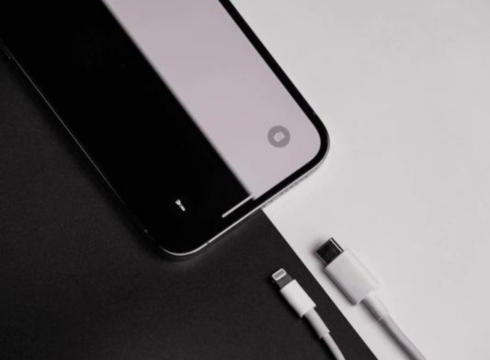India is looking to adopt the European Union rule, requiring smartphones to have a universal USB-C charging port
This also comes at a time when Apple is scouting for Indian, Japanese and South Korean suppliers which can provide critical components to its contract manufacturers in India
India is seen as Apple's next growth frontier after China. Analyst Ming-Chi Kuo predicts that 12-14% of iPhone production in 2023 will be in India, with a potential increase to 25% next year
Inc42 Daily Brief
Stay Ahead With Daily News & Analysis on India’s Tech & Startup Economy
US tech giant Apple has told India that its local production targets could be impacted if New Delhi follows the European Union in mandating universal charging ports for existing iPhones, a government document shows as the company seeks an exemption or delay, Reuters reported.
India is looking to adopt the European Union rule, requiring smartphones to have a universal USB-C charging port. Discussions with manufacturers are ongoing to implement this requirement in India by June 2025, six months after the EU’s deadline.
While all manufacturers, including Samsung, have agreed to comply with India’s plan, Apple is resisting the move.
This also comes at a time when Apple is scouting for Indian, Japanese and South Korean suppliers which can provide critical components to its contract manufacturers in India.
The US tech giant has for years offered a unique lightning connector port on its iPhones. The EU, however, estimates a single charger solution would save about $271 Mn for consumers, and India has said the move will reduce e-waste and help users.
In a confidential meeting on November 28 led by India’s IT ministry, Apple requested an exemption for current iPhone models from new regulations. The tech giant warned that adherence could hinder meeting production targets outlined in India’s production-linked incentive (PLI) scheme.
The PLI scheme provides fiscal incentives to electronic manufacturers in India for new investments and annual increases in phone sales.
India is seen as Apple’s next growth frontier after China. Analyst Ming-Chi Kuo predicts that 12-14% of iPhone production in 2023 will be in India, with a potential increase to 25% next year. Apple’s market share in India’s smartphone market has grown from 2% to 6% in four years.
Currently, only the iPhone 15 has the new universal charging port. Apple told Indian officials in the meeting that the “design of the earlier products cannot be changed,” the document showed.
Apple presently manufactures several iPhone models, including the latest iPhone 15, in India. There are plans to commence AirPods production next year, although it remains uncertain if iPads or MacBooks will be manufactured in the country.
The Cupertino-based company has expanded its production capacity in India through key contract manufacturers such as Foxconn, Wistron, and Pegatron, reflecting a broader strategy to enhance iPhone production and potentially include other Apple products.
Apple is planning to ramp up production by more than five times the current levels to around $40 Bn by 2027.
The tech giant has already scaled up capacity to achieve over INR 60,000 Cr in production during the first seven months of the fiscal year. It further aims to produce iPhones worth INR 1 Lakh Cr in India by the end of March 2024.
Apple’s India business recorded a revenue of INR 49.3K Cr (almost $6 Bn) in FY23, marking an increase of 48% from INR 33.3K Cr ($4.03 Bn) in FY22.
Note: We at Inc42 take our ethics very seriously. More information about it can be found here.


